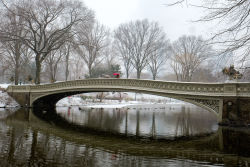Central Park
Uncommon Ground Lecture Explored The Future Of Nyc Parks & Natural Environment
IMMEDIATEThursday, April 24, 2008
No. 36
http://www.nyc.gov/parks
Parks Commissioner Adrian Benepe hosted a discussion that explored the juncture between the City’s wildlife and urban environment in the 21st Century. Contributors to this talk included Regional Director of the National Parks Conservation Association Alexander Brash, Landscape Architect & Ecologist Alexander Felson, Central Park Conservancy Founder Elizabeth Barlow Rogers and President of the Council on the Environment Marcel Van Ooyen.
“Under Mayor Bloomberg’s leadership and the implementation of PlaNYC, environmental awareness has been brought to the forefront of our City,” said Commissioner Benepe. “This evening’s lecture examines the challenges and possibilities surrounding our natural environment. The discussion will help us play an integral role as we protect wildlife and shape the parks of the future.”
The lecture melded Earth Day with Mayor Michael Bloomberg’s PlaNYC and marks some recent environmental groups’ anniversaries such as the 120th Anniversary of the Linnaean Society, the 20th Anniversary of the Urban Park Rangers and the 150th Anniversary of Olmsted and Vaux’s Greensward plan for Central Park. Mayor Bloomberg also named April MillionTreesNYC Month, after his initiative to add more greenery to the City’s environment. These milestones and events set the stage for the discussion as the group examined the City’s parks and natural environment.
“America's democracy was forged on the anvils of our forbearers’ wilderness experiences,” said Alexander Brash, the Regional Director of the National Parks Conservation Association. “With orchids, salamanders and owls still gracing our City's parks today, we must not forget these living partners as we look to recast the City in the 21st Century.”
Parks gathered some of the City’s premiere environmentalists and groundbreakers of both natural and parks history. They discussed the City’s wildlife, plant populations and how they have adapted to living in New York City, along with their insights on how to maintain them into the future. Copies of “Natural History of New York City's Parks and Great Gull Island,” a book collaboratively written and published by NPCA, the Linnaean Society of New York, and the New York City Department of Parks & Recreation were available for all attendees.
- 30 -
Check out your park's Vital Signs
Clean & Safe
Green & Resilient
Empowered & Engaged Users
Share your feedback or learn more about how this park is part of a
Vital Park System
Contacts
Central Park Information: (212) 310-6600
Central Park Information (for the Hearing Impaired): (800) 281-5722
Belvedere Castle, The Henry Luce Nature Observatory: (212) 772-0210
The Charles A. Dana Discovery Center: (212) 860-1370
The Dairy Visitor Center and Gift Shop: (212) 794-6564
North Meadow Recreation Center: (212) 348-4867
Loeb Boathouse (Bike rentals, boat rentals & gondolas): (212) 517-2233
Carousel: (212) 879-0244
Fishing at Harlem Meer (Catch & Release): (212) 860-1370
Harlem Meer Performance Festival: (212) 860-1370
Horseback Riding - Claremont Stables: (212) 724-5100
Metropolitan Opera (Performances on the Great Lawn): (212) 362-6000
New York Philharmonic (Performances on the Great Lawn): (212) 875-5709
Shakespeare in the Park - The Public Theater at the Delacorte Theater: (212) 539-8655
Central Park SummerStage: (212) 360-2777
Swedish Cottage Marionette Theater: (212) 988-9093
Tennis: (212) 280-0205
Weddings, Ceremonies and Photography at the Conservatory Garden: (212) 360-2766
Wildlife Center & Tisch Children's Zoo: (212) 439-6500











